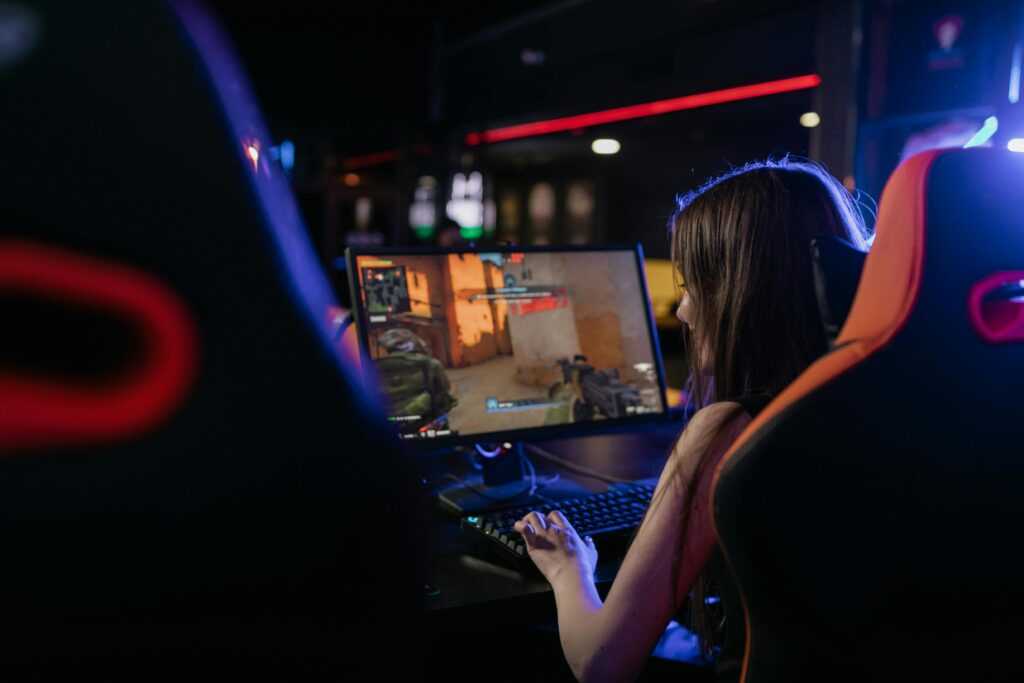The world is moving at a pace dictated by technology, and digital marketing is fast becoming the cornerstone for development in almost every industry. It spreads across retail and big firms like real estate, agro businesses, and other sectors worldwide. alworldwideThe ability to reach a target audience is pivotal, and this is especially true for the online gaming industry, too.
In the Gaming industry, competition for players’ attention is the ultimate goal. Leading software developers and other gaming platforms expand their reach through multi-channel digital marketing strategies to draw the attention of players around the world. They deploy sophisticated strategies to market their online products and services. In this article, we will see how the digital marketing tactics deployed are effective and the future of online gaming advertising.
The Digital Marketing Tactics Deployed For Online Gaming
Online gaming companies use different dynamic tactics for slot games and other services. They have moved from traditional advertising to creating community-driven, immersive experiences that resonate with consumers. Here are key marketing tactics for online gaming.
Content Marketing and Community Building
Community building is one of the phenomenal benefits of social media and online marketing. The world is considered a global village because of the ability to link up with anyone, anywhere, through online marketing. Online gaming platforms recognize this and are channeling their advertisement through building communities. Community is constantly growing. When you sell through a community, selling is an ongoing experience. Prominent community building sites are used.
- YouTube channels featuring game trailers, tutorials, and high-quality clips are used. Here, products are not just for sale; learning is free.
- Blogs and Guides: Offering deep dives into game strategies, new feature announcements, and lore, which also boosts SEO.
- Social Media Engagement: Platforms like Twitter, Instagram, and TikTok are used for real-time customer service, meme creation, fan art highlights, and running contests that foster a strong sense of community.
This content serves a dual purpose: it attracts new players through search and discovery algorithms and keeps existing players invested in the game’s ecosystem.
Personalisation and Data-driven Advertisement
Gaming companies collect vast amounts of player data and leverage it for targeted advertising. This tactic is a crucial means of meeting the individual needs of gamers. It also helps to retarget campaigns to players who viewed a game to come back or complete registration. At first, it was an audience modelling ad targeting the audience, then personalization continued upon registration. Here, tailored game recommendations and promotional offers based on their interest and playing styles are targeted to keep them engaged.
Influencer and Streamer Collaborations
It is considered the most effective tool in online gaming today. Online gaming platforms strategically use influencers to market their products. Some companies partner with these content creators and influencers, including mega-celebrities, to show their games to their audiences. Videos via Twitch, YouTube, and other online platforms are used as social proof and are considered authentic by the audience of the Influencers. Rather than using traditional adverts, the collabs with these influencers work effectively, especially when they use special promo codes, to engage their trusted communities. The trust from the audience is the key, and it yields their engagement.
Search Engine Optimisation (SEO)
A strong SEO strategy helps a company’s title appear at the top of search engine results. It is an effective digital marketing tactic that pulls audiences around the world. Games or gaming products and services are just one search away. To fully maximise this strategy, online gaming platforms optimise their website content, acquire backlinks to their keyword-rich articles, and put them online. Contents like “How to play Poker” attract players at the first phase of their gaming journey.
The Future of Gaming Marketing: Immersive and Integrated
The Rise of Immersive Technologies
AR, VR, and Metaverse Advertising will increasingly become fully immersive environments. While virtual reality (VR) and augmented reality (AR) are already in use, their adoption will become mainstream. This evolution is intrinsically linked to the development of the metaverse, a persistent network of interconnected digital worlds. Within these spaces, advertising will transform into experiential activations. A brand might sponsor an entire in-game event or concert, like Fortnite’s record-breaking Travis Scott concert, which attracted over 12.7 million concurrent participants. This isn’t just an ad; it’s a cultural moment that brands can integrate with naturally.
Dominance of Interactive Formats and Playable Ads
Video Ads are giving way to interactive and playable ads. This means, in the future, more games will allow players to experience the core gameplay loop within the ad unit before even downloading the game. Trying and enjoying a demo gives a higher experiential level than a player who just saw a trailer.
Statistics show the power of this format:
- According to IronSource, playable ads can increase conversion rates (CTR) by up to 40% compared to standard video ads.
- They also reduce cost-per-install (CPI) by ensuring that downloads come from players already primed to enjoy the game, leading to better retention rates.
More Focus on Community and User-Generated Content
There will be more blurred lines between game creators and consumers. Game companies will build tools that allow players to create their own content, and standout or high-selling games can automatically make such players brand ambassadors. It is a type of marketing that celebrates authentic community building through creativity beyond corporate message marketing. Platforms like Roblox, which boasts over 70 million daily active players who spend billions of hours engaged with community-created experiences, exemplify this future. Brands will advertise by creating their own immersive experiences within these player-driven platforms.
In the future, online gaming advertising will be about more innovative, more integrated ads. It will be defined by experiences, hyper-personalised communications powered by AI, community building, and deep partnership with players. Online gaming platforms will continue to harness digital marketing. Consumers or players will not just be seen as the name they carry, but as a community to be engaged.


